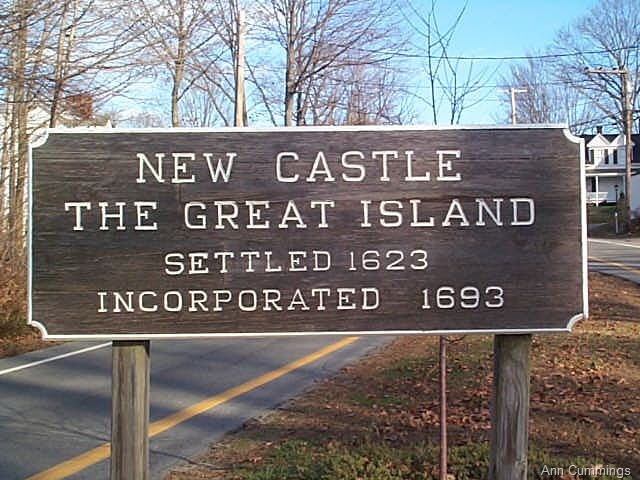Although New England was generally a very prosperous place, not all immigrants were successful. This is the story of one such immigrant. Samuel Eddy was baptized in Cranbrook, Kent, England on May 15, 1608. Samuel does not appear in any ship's records but his brother, John, arrived in the
Handmaid, in 1630. Since Samuel is shown to be in Plymouth in 1630, it is the general consensus that he likely came with his brother. Two sisters also came to the colonies: Abigail (Eddy) Benjamin, wife of John Benjamin and Anne (Eddy) Wines, wife of Barnabas Wines. The Eddy immigrants were the children of Rev. William and Mary (Fosten) Eddy. I am connected to John Eddy through my grandfather, Clayton Blake and to Samuel Eddy through my grandmother, Linona Yates.
Samuel was a tailor in England and continued in that profession in the colonies. He made uniforms for soldiers in King Philip's' War. He married a woman named Elizabeth. There is speculation that she may have been the sister of Thomas Savory of Plymouth. This is based on a transfer of land from Samuel Eddy to widow Ann Savory. The record states that the land was received from "our brother-in-law Samuel Eddy."
Samuel and Elizabeth had five children: John b. 25 December 1637; Zachariah b. abt. 1639; Caleb b. abt. 1643; Obadiah b. abt. 1645 and Hannah b. 23 June 1647.
 |
| Riches to Rags? |
In 1632/3, Thomas Brian, servant of Samuel Eddy, was brought before the council for running away from his master and was privately whipped. So it seems that initially, Samuel's family was doing well enough in their new home but that would change.
Evidently the tailoring business was not doing very well because three of the children were placed with other couples to be raised. Five was not a large family by the standards of the time but there may have been other children who died young and were not recorded. Still the family could not take care of them and in April 1645, they placed the first of their children, John, with the family of Francis and Katherine Goulder. Then the court record of 2 March 1646/7 states "Whereas Samuell Edeth & Elizabeth, his wife, of the town of Plim(outh) aforesaid, having many children and by reason of many wants lying upon them, so as they are not able to bring them up as they desire, and out of the good respect they bear Mr. John Browne, of Rehoboth, one of the Assistants of this government, did both of them jointly desire that he, the said Mr. Browne, would take Zachery, their son, being of the age of seven years, & bring him up in his employment of husbandry, or any business he shall see meet for the good of their child till he come to the age of one & twenty years," which Browne agreed to do. In March of 1652, Samuel and Elizabeth made a similar arrangement with Mr. John Browne for their son, Caleb, when he was nine years old. Further evidence of the poverty of the family is seen in the records that show Samuel Eddy regularly hired one of the cows which were maintained for the town's poor.
After putting out the oldest three boys, Samuel & Elizabeth had at least two more children. I wonder why the family ended up living in poverty despite Samuel's skill and evidence of better times in the 1630s. Was there an event that changed the circumstances of this family? Was there a family connection with John Browne or was he just someone known and respected by Samuel & Elizabeth?
Samuel Eddy & Elizabeth Savory?
John Eddy & Hepzibah Doggett
Alice Eddy & John Leach
Giles Leach & Anna Waterman
Elizabeth Leach & Jonathan Shurtleff
Lucy Shurtleff & Calvin Cole
Calvin Cole Jr & Betsey Judkins
Aphia Delphina Cole & Sydney Hayes
George Hayes & Anna Rowe
Eva Delphinia Hayes & Estes Yates
Linona Alice Yates - my grandmother
John Eddy, Sarah Eddy, Elizabeth Marion, Samuel Dearborn, Mary Dearborn, Benjamin Blake, David Blake, Micajah Blake, Galen Blake, Charles G. Blake, Harriet Mae Blake, Clayton L. Blake - my grandfather.
Plymouth Colony: Its History & People 1621-1691 by Eugene Aubrey Stratton. Ancestry Publishing. Salt Lake City. 1986.
http://www.mayflowerfamilies.com/enquirer/servitude.htm
http://www.americanancestors.org/pilgrim-families-samuel-eddy/









